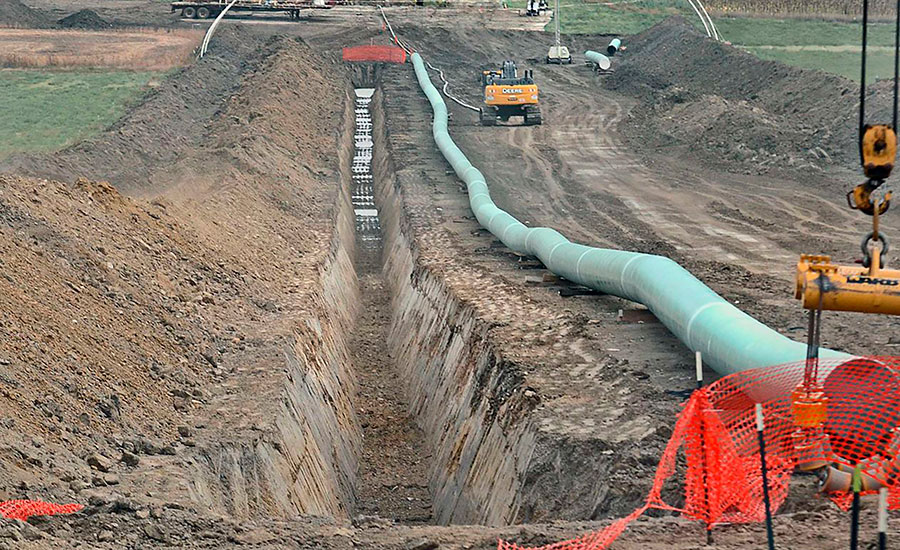A federal judge on March 25 struck down the U.S. Army Corps of Engineers permit for the Dakota Access Pipeline and ordered the agency to complete an environmental impact statement for the crossing beneath the Missouri River three years after the project began operating.
Judge James Boasberg in Washington, D.C., federal district court found there are unresolved concerns about the potential effects of oil spills on the river that the Standing Rock Sioux Tribe relies on for fishing, agriculture, drinking water and religious ceremonies.
But his ruling stopped short of ordering the 1,172- mile pipeline between Illinois and North Dakota shut down, with briefs on this issue due from both sides next month.
The tribe originally brought suit against the agency after it issued a permit in 2016, and in early 2017 the Corps agreed to prepare the EIS.
But following the change of administration in January 2017 and a presidential memorandum encouraging acceleration of the pipeline project, the Corps reconsidered its decision and ultimately decided to terminate its intent to prepare an EIS.
Boasberg said in his 42-page opinion that too many questions remain unanswered.
“Unrebutted expert critiques regarding leak-detection systems, operator safety records, adverse conditions, and worst-case discharge mean that the easement approval remains ‘highly controversial’ under the National Environmental Policy Act,” he said, noting the Corps has not adequately discharged its duties under the law.
The Corps relied on studies citing pipeline data from older pipelines installed prior to modern pipeline standards, the opinion said.
The agency has not commented on the ruling.
Two consulting engineers advising the tribe also found the system was not even designed to detect leaks that constituted 1% or less of the pipe’s flow rate. “At the current pipeline flow rate of about 600,000 barrels per day, about 25,200 gallons, could be released continuously, over a long period of time, without detection,” the court said.
“This validates everything the tribe has been saying all along about the risk of oil spills to the people of Sanding rock,” Jan Hasselman, attorney for Earthjustice, said in a statement.
“After years of commitment to defending our water and earth, we welcome this news of a significant legal win,” Standing Rock Sioux Tribe Chairman Mike Faith said.






Post a comment to this article
Report Abusive Comment